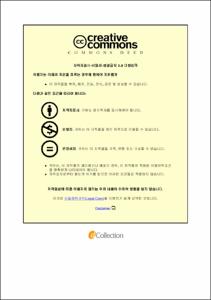A Conjoint Analysis of Willingness to Accept for Community-Based Renewable Energy Projects: The Case of South Korea
- Alternative Title
- 컨조인트분석법을 이용 한 한국에서의 신재생에너지 발전소 수용성에 관한 연구
- Abstract
- Increasing level of greenhouse gases and air pollutant emissions has made countries all around the globe compete to find alternative renewable energy sources. South Korean Government has set a target that by 2040, 17% of the total primary energy source should be generated from a renewable source. In the direction of creating policies to accommodate this future goal, it is crucial to analyze the willingness to accept for the people whose lives will be affected by the policy. In this study, the survey was done nationwide to understand the general opinion of the public and also locally in the proximity of the planned project to get the opinion of those who would be affected directly.
Choice experiment (CE) was used to give the spotlight to the relation between each alternative and level. This experiment shows that energy source type, distance, and annual percentage incentives could affect the general public and local residents’ renewable energy project acceptance level. Other than these attributes, only the local residents put investment levels into consideration before accepting the project.
The MWTA of each of those statistically significant attributes shows that the general public was willing to receive a smaller incentive percentage compared to the local residents’ result. By referencing the public’s opinion concluded from this study in the planning step of RE projects and policies, it can help to boost the project’s local and general acceptance rate significantly.
온실 가스 및 대기 오염 물질 배출량이 점차 증가함에 따라 전 세계 여러 국가가 석탄 및 석유를 대체할 에너지원으로써 더 효과적이며 효율적인 재생가능 에너지원을 개발에 경쟁하고 있다. 한국 중앙정부는 2040 년까지 전체 1 차 에너지 원의 17%가 재생 가능 에너지원으로 부터 생산되어야 한다는 목표를 세웠다. 이 미래 목표를 달성하기 위한 정책을 만드는 방향에서 정책에 의해 삶의 질이 영향을 받는 사람들을 기꺼이 받아들이려는 의지를 분석하는 것이 중요하다. 본 연구에서는 전국민 조사를 통해 일반적인 견해를 파악하고 직접 영향을 받을 사람들의 의견을 구하기 위해 계획된 프로젝트의 근접 지역에서 사는 주민이 주관으로 실시하였다.
컨조인트 분석법의 Choice Experiment (CE)을 이용하여 각 대안과 수준 간의 관계성에 초점을 맞춰 줬기 때문에 이 분석법을 사용하였다. 이 실험은 에너지원 유형, 거리 및 연간 비율 인센티브가 일반 대중 및 지역 주민의 재생 가능 에너지 프로젝트 수용 수준에 영향을 줄 수 있음을 보여주었다. 이러한 속성 외에, 프로젝트를 수락하기 전에 지역 주민 만이 투자 수준을 고려하였다. 통계적으로 중요한 각 속성의 MWTA는 일반 대중이 지역 주민의 결과와 비교하여 더 적은 인센티브 비율을 받고자 한다는 것을 보였다. RE 프로젝트 및 정책의 계획 단계에서 본 연구에서 결론을 얻은 대중의 의견을 참조함으로써 프로젝트를 동의할 의향을 크게 높일 수 있다.
- Issued Date
- 2020
- Awarded Date
- 2020. 2
- Type
- Dissertation
- Keyword
- Choice experiment marginal willingness-to-accept willingness-to-accept multinomial logit models
- Publisher
- 부경대학교
- Affiliation
- 부경대학교 대학원
- Department
- 대학원 과학기술정책협동과정
- Advisor
- 이민규
- Table Of Contents
- I. INTRODUCTION 1
1.1 Background 1
1.2 Literature Review 4
II. CURRENT STATUS OF RENEWABLE ENERGY PROJECT IN SOUTH KOREA 8
2.1 Wind Power 10
2.2 Solar Photovoltaic 15
2.3. Biomass Plant 19
III. METHODOLOGY 23
3.1 Choice Experiment 23
3.2 Attributes and Choice Sets 23
3.3 Survey Method 25
IV. MODEL 28
4.1 Random Utility Model 28
4.2 Model 29
V. RESULTS 31
5.1 Survey Results 31
5.2 Estimation Results 32
5.3 MWTA Estimations 34
VI. CONCLUSION 38
6.1 Summary 38
6.2 Policy Implication 39
6.3 Restriction and Future Research 40
REFERENCES 41
APPENDIX 49
Acknowledgement 54
- Degree
- Master
- Appears in Collections:
- 대학원 > 과학기술정책협동과정
- Files in This Item:
-
-
Download
 A Conjoint Analysis of Willingness to Accept for Community-Based Renewable Energy Projects: The Case.pdf
기타 데이터 / 985.12 kB / Adobe PDF
A Conjoint Analysis of Willingness to Accept for Community-Based Renewable Energy Projects: The Case.pdf
기타 데이터 / 985.12 kB / Adobe PDF
-
Items in Repository are protected by copyright, with all rights reserved, unless otherwise indicated.